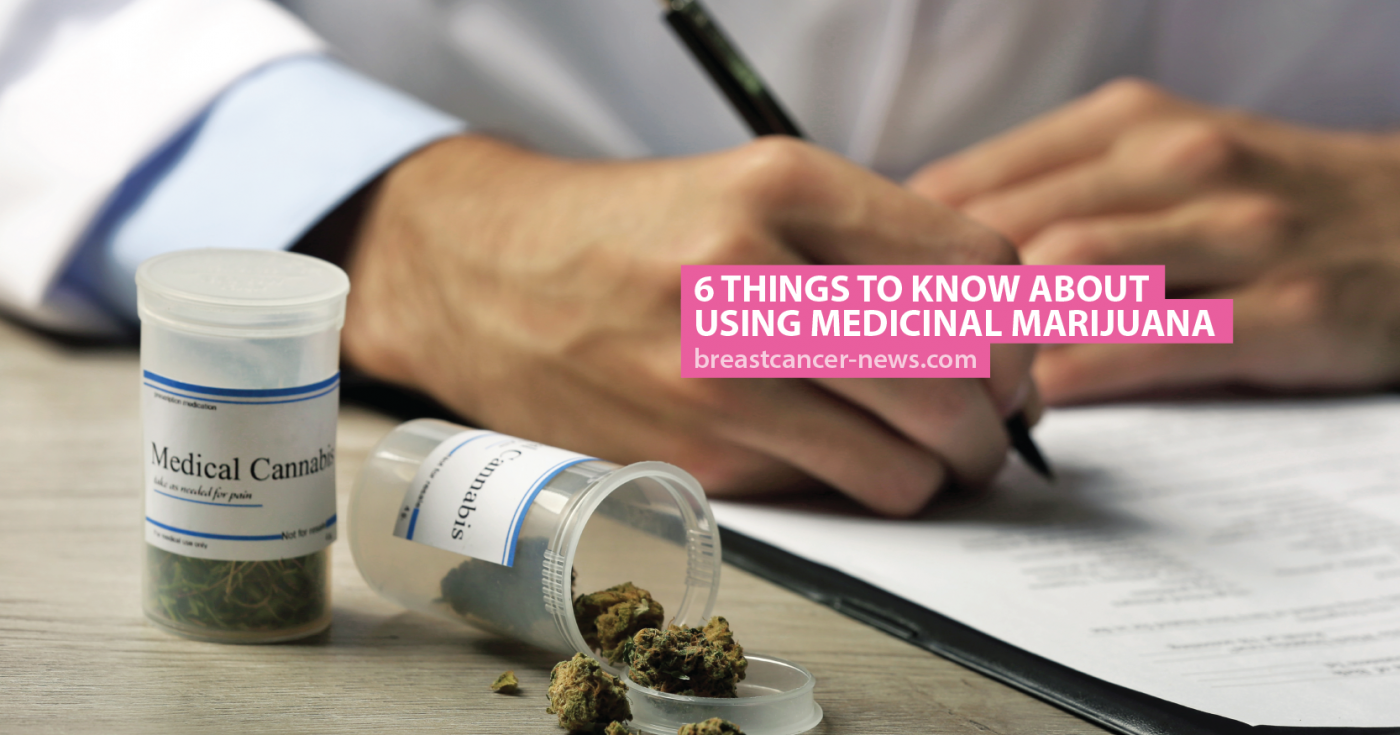Using cannabis or marijuana for medicinal purposes is a hot topic right now among patients and health practitioners. It’s regularly touted as a pain reliever for many chronic illnesses, including cancer.
According to the National Cancer Institute, here are some of the facts about medical marijuana and its suggested uses:
It’s grown all over the world.
The plant is grown in various places around the world but originated in central Asia. The resin of the plant contains compounds called cannabinoids which are active chemicals that affect the brain and central nervous system.
The key is cannabinoids.
Two of the active cannabinoids that are useful in medical marijuana are delta-9-THC and cannabidiol. Delta-9-THC is psychoactive and is the property that gives users the “high,” whereas cannabidiol can help the central nervous system and immune system by decreasing inflammation without any high for the user. Cannabinoids can be taken in several ways: inhaled, sprayed under the tongue, ingested or smoked.
It’s been used for thousands of years.
Cannabis has been used for medicinal purposes in some civilizations for thousands of years, but it’s only been since the late 19th century that western medicine has started to see the potential for cannabis to be used as a pain reliever.
MORE: How prevalent is cancer?
Medical marijuana is legal in some states.
Recreational use of cannabis is illegal in the United States, but many states now allow the use of medicinal marijuana for patients who are registered.
Cannabinoids can help with the side effects of chemotherapy.
It’s thought that cannabinoid drugs may offer pain relief for cancer patients and help with some of the side effects of treatment, including chemotherapy. Though as of right now, there’s no hard evidence to support the use of ingesting or smoking cannabis to treat nausea and sickness from chemotherapy.
Cannabis has killed cancer cells in laboratory tests.
There has been clinical research which shows that cannabis has been able to kill cancer cells in laboratory tests, but cannabis has not been approved by the FDA as a treatment for cancer.
MORE: Seven tips to help you find the right oncologist
Breast Cancer News is strictly a news and information website about the disease. It does not provide medical advice, diagnosis or treatment. This content is not intended to be a substitute for professional medical advice, diagnosis, or treatment. Always seek the advice of your physician or another qualified health provider with any questions you may have regarding a medical condition. Never disregard professional medical advice or delay in seeking it because of something you have read on this website.


Your essay is old news. Smoking pot prevented nausea from the 8 week course of AZT chemo for me. I didn’t lose any hair either. I had excellent care for my stage II B ductal. A radical right mastectomy, chemo and 33 hits of radiation. 7 yrs and 2 grand children later, I consider myself a survivor. Breast cancer was an adventure for me.
Ms. Dubois, my mother died of brain cancer when I was 3. I remember her losing her beautiful, beloved hair and being so nauseated especially on holidays. Your personal testimony has moved me. Ever since I found out about medical marijuana, I wondered how or if it could help her, especially in her last days. If you are comfortable, I would be honored to interview you.